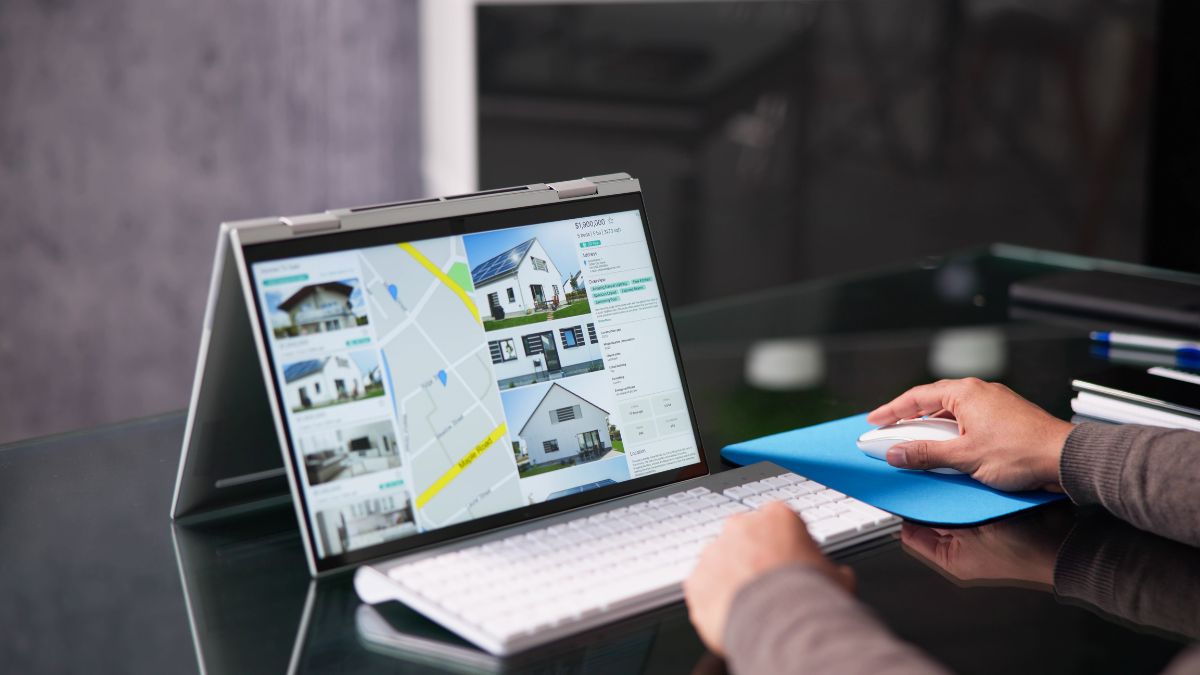Virtual Reality in Property Marketing
Category : Property Development | Sub Category : Property Development Posted on 2025-04-29 16:06:50

Virtual reality (VR) is
revolutionizing the marketing, purchasing, and selling of real estate,
completely changing the real estate business. VR is giving buyers and sellers a
more convenient, effective, and immersive method to connect with properties as
technology advances. Virtual reality (VR) is quickly becoming an indispensable
marketing tool for real estate agents, whether it be through 3D tours or
virtual staging.
The potential to provide
virtual property tours is one of VR's biggest benefits for real estate
marketers. Buyers used to have to physically visit houses, which might be
inefficient and time-consuming, particularly if they were looking at several
places. Virtual reality (VR) allows prospective buyers to virtually tour houses
from anywhere in the globe, all from the comfort of their current location.
These virtual tours provide a thorough overview of the property without
requiring the customer to travel, giving them a genuine impression of the
space, layout, and architecture.
The burden of making
selections based on a brief, in-person visit is also removed by using virtual
tours, which let purchasers return to places as many as they like. This
flexibility helps buyers make better decisions and can help them focus their
options before making an in-person visit. This translates to less time spent on
in-person showings and more qualified leads for real estate brokers.
Virtual staging is
another creative way VR is improving real estate marketing. Conventional
staging is the placement of real furniture and décor in an empty house, which
can be expensive and time-consuming. Virtual reality provides an answer by
outfitting the property digitally. Customers can picture how a room can appear
with various furniture layouts, color schemes, and styles. This facilitates the
potential buyer's ability to picture themselves living there, which may result
in quicker sales.
Flexibility is another
benefit of virtual staging; it enables properties to be exhibited in a variety
of ways to suit a range of tastes. With VR, a buyer may easily alter a house to
suit their preferences, whether they are modern, minimalist, or vintage. By
adding value and appeal, customization makes assets stand out in a crowded
market.
Real estate agents may
broaden their market reach by utilizing virtual reality in their property
marketing. A worldwide market for real estate listings is created by the
ability of buyers from other cities, nations, or continents to see properties
virtually. High-end homes and foreign investors, who might not have the time or
means to see every property in person, will especially benefit from this.
Language limitations and
physical distances are less of an obstacle when using virtual reality. Unlike
static photographs or videos, potential buyers may virtually tour houses,
providing a more personal connection to the listings. The chance of interest and
bids from overseas purchasers increases because of this technology's ability to
foster trust and interaction with a wider audience.
VR property marketing
may potentially result in considerable cost reductions for real estate brokers.
A reduced number of in-person shows translates into less time spent on travel
and buyer coordination. Virtual staging not only saves money on furniture
rentals and expert design services but also presents the home in a superior
manner.
Virtual reality has the
potential to shorten a property's time on the market from a marketing
standpoint. When a buyer visits the house in person, they are more likely to be
serious about making an offer if they have already seen staged versions of the
property and undergone virtual tours. Both the buyer and the seller gain from
this expediting of the purchasing process.
VR technology will
probably play an even bigger part in real estate marketing as it develops. Real
estate listings may eventually standardize on features like customized
renovations, interactive floor plans, and augmented reality (AR) connections.
In a virtual setting, buyers may be able to make real-time changes to the
house, such as painting the walls a different color, constructing an addition,
or replacing the flooring.
Virtual reality (VR) and
artificial intelligence (AI) together may also improve customization by
allowing property recommendations to be customized according to the
requirements and tastes of the buyer. Real estate brokers will be able to
propose properties more specifically with AI-powered insights and virtual
reality tours, which will increase the likelihood of successful deals.
Without a doubt, virtual
reality is transforming the real estate industry by providing brokers with new
ways to efficiently promote properties and by giving buyers new opportunities
to interact with listings. Virtual reality (VR) is revolutionizing the marketing
and sales of real estate by offering immersive tours, virtual staging, and a
worldwide reach. Virtual reality (VR) will remain a key player in transforming
the real estate sector as technology develops.
Visit
our website at https://aussierealestate.net.au/.
#RealEstate
Search
Categories
Recent News
- Impact of Social Media on the Real Estate Industry
- Bricks and Dollars: The Impact of Real Estate on the Australian Economy
- Beyond the Horizon: Trends and Dynamics in the Australian Real Estate Market
- Selling Spaces: Dynamics of Real Estate Marketing and Advertising
- Australian Real Estate Investment: The Financial and Labor Forces for Success
- Land Supply and Real Estate Development in Australia
- Modernizing Property: Technologies and Trends Shaping the Real Estate Industry in Australia
- Building a Greener Future: The Role of Real Estate in Sustainable